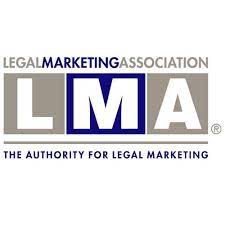FTC Guidelines for Fake Online Reviews

Over the summer, The Federal Trade Commission (FTC) has proposed new regulations to combat businesses engaged in the purchase, sale, and manipulation of online reviews. If approved, these rules would carry a significant penalty: a fine of up to $50,000 for each fake review, each time a potential client encounters it.
The potential financial impact for those involved could escalate rapidly. While this represents the most substantial step taken by the federal government thus far to discourage the insidious market of fake reviews, the FTC’s regulations do not hold major review platforms like Yelp, Google, Tripadvisor, and Amazon directly accountable. You’ve seen this happen in the marketplace – an overwhelming number of obviously fake five-star reviews for a subpar service or product. Perhaps a business even offered to compensate you for leaving a positive review. (Insert our OMG face here.) We agree that this kind of fraud undermines consumers’ collective power, and it also extends to the legal industry.
There are global enterprises solely dedicated to producing fake reviews, catering to scammers and unscrupulous merchants seeking shortcuts. The problem becomes even more concerning in an era of artificial intelligence like ChatGPT, capable of generating highly human-like content in a matter of seconds.
How Have Fake Reviews Been Handled in the Past?
The federal government has primarily addressed the issue through individual lawsuits. However, the FTC’s stance is that fake reviews have always been illegal due to their misleading nature. The proposed regulations aim to draw clear boundaries, assigning responsibility and granting the FTC greater authority. Among the prohibited actions outlined in the rules are reviews that distort a person’s experience with company or service and those falsely claiming to be authored by non-existent individuals. Additionally, reviews written by insiders, such as employees, must include clear disclosures.
What Law Firms Need to Know
For law firms that might change who you ask to leave a review. Previously, we would encourage law firm administrators to consider asking for reviews from the vendors they use regularly, the lawyers they co-counsel with, and the companies they depend on. Now, we think that might not be smart.
The regulations not only target those writing fake reviews but also encompass the intermediaries who facilitate them and the companies that pay for them—companies that either knew or should have known that the reviews were fake. However, there are certain gray areas to consider. For instance, if a law firm requests its genuine clients to leave reviews, that is still permitted, as it is a critical tool for small businesses to establish an online reputation. The rules also do not explicitly prohibit offering legitimate customers a gift card in exchange for a review, as long as expressing a specific opinion is not a requirement. However, disclosing any significant monetary incentives is strongly advised. However, lawyers also need to consider state bar regulations when asking for reviews. You should never offer compensation in exchange for a review. (We are shouting this for the people in the back… never offer compensation in exchange for a review.)
Overall, regulation is coming. When ramping up your online reviews be sure you’re asking clients only and following your state bar regulations. Read more about how to manage online business reviews.







